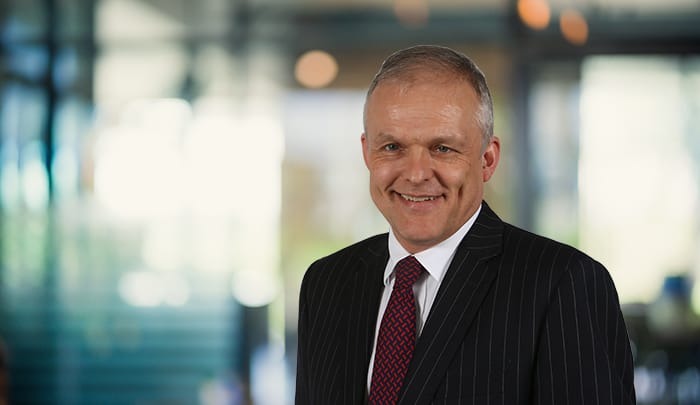Hill Dickinson’s head of banking and finance, Richard Capper, forecasts the year ahead

“COVID-19 has affected every aspect of what we do — from the clients we work with to how we do our work,” says Richard Capper, partner and head of banking and finance at Hill Dickinson, when we speak.
Capper notes that his team has seen an increase in advisory work involving explaining to clients how COVID-19 is impacting their business: “It’s enabled us not only to get to know our clients better but also their business and to better understand their strategies.”
Within Capper’s practice area of banking and finance there has been a notable rise in the level of work from secondary lender clients. He explains: “Big banks have been focusing on their existing customers’ needs at the moment instead of doing new transactions. It’s been a good opportunity for us to pick up increased workflow from those clients.”
Looking ahead to the post-pandemic world following the rollout of the vaccine, Capper highlights the importance of ‘horizon scanning’ to recognise where opportunities lie. “We’ll be looking at the peaks and troughs that will come from the recovery of the economy,” he says.
In particular, Capper forecasts a surge in opportunities within the travel sector. “The feast will come after the famine — everyone will rush to book holidays and with it comes all that’s associated with travel such as booking flights and hotels among others,” he shares.
A key difference Capper highlights when looking to life after COVID will be the way in which we work.
“That’s principally going to be about where we do our work from — how we work in teams remotely or whether there’s a rush back to the office. However, an important question that emerges surrounding this is if everyone’s expectations are aligned when we go ‘back to normal’”.
Only time will tell if we’ll see a full return to the office. “Personally, I’d love to go back into the office and benefit from the interactions that come from being in an office with your colleagues and clients,” adds Capper.
Much of the decision is based around the client, he continues, noting an increase in clients taking advantage of lease breaks while others are downsizing office space. The question is: “If clients are going to work remotely — do their lawyers need to be in offices or should they be working as their clients are?”
Positives have undoubtedly come about from the shift to remote-working due to the pandemic. When we speak, Capper tells of me a recent client meeting for a transaction involving parties based up and down the country. “The client was based in London, the borrower in Birmingham and the advisers were from different offices of national law firms. Holding this meeting pre-COVID would have involved a lot of travel and wouldn’t have been practical, but to do it on a one-hour video call was very efficient.”
Whilst performance with existing clients may be enhanced by this increase in efficiency, Capper notes that, owing to the pandemic, lawyers may need to focus more on developing business with new clients. “All those chance encounters — the client you meet at an event, pass when you’re walking down the street or bump into on the train — that have generated opportunities throughout my 30-year career aren’t happening. So, we need to learn new ways to develop new business with new clients,” he explains.
When it comes to advice for aspiring lawyers, Capper draws on his wealth of experience as training principal at Hill Dickinson. In his role, Capper interviews all candidates and advises interviewees to “show an interest in the firm and make sure to ask questions relevant to that particular law firm”. Whether that’s discussing a practice area or location of one of the firm’s offices (Hill Dickinson has nine offices, including in London and Liverpool, as well as international offices in Piraeus and Monaco), make sure what you’re saying is tailored to the firm in question. For example, Hill Dickinson’s unique training contract is structured in three streams: business services, health and marine, enabling trainees to focus on an area of law during their training contract to develop their expertise.
Capper is looking for trainees who can demonstrate why they want to join the firm, have leadership skills but who can also work well as part of a team. “In terms of our firm, there’s no such thing as a stereotypical Hill Dickinson trainee. We are always looking for a diverse cohort of trainees that will work together with the team.”
Most importantly for those on the hunt for a training contract:
“Be persistent and don’t give up! Use any opportunity you have to get work experience and get your foot in the door.”
Richard Capper will be speaking alongside other Hill Dickinson lawyers at ‘The world after the vaccine’, a virtual student event taking place this week, on Wednesday 27 January. You can apply to attend the event, which is free, now.
About Legal Cheek Careers posts.


